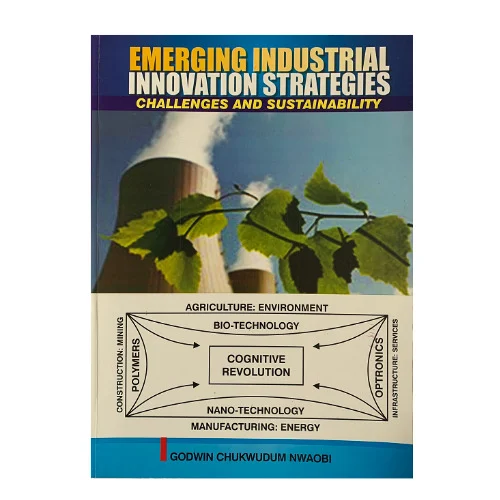Emerging Industrial Innovation Strategies: Challenges And Sustainability By Prof. Godwin
Description
Prof. Godwin Chukwudum Nwaobi is a visiting Professor of Economics (Scientific committee membership) with African union commission. As a distinguished African Scholar, Prof Nwaobi has consulted to various local and international organizations around the globe. Specifically, he was a member of the United Nations African Panel on post-2015-MDG framework (University of Cape Town, South Africa). Prof.
Nwaobi was also a key participant at the 19th Annual conference of the African Region Chapter of the Économetric Society, Addis Ababa, Ethiopia, East Africa. As a renowned Professor of Economics, he has published extensively numerous books and articles. His recent publication includes Modern Econometric Modeling for Developing Economies III. As British trained applied econometrician, Prof Nwaobi has been very active in various international research networks for global development. Currently, Prof. Nwaobi is a research director at Quantitative Economic Research Bureau, Nigeria, West Africa (). As an intellectual mark of recognition, he was recently nominated for the conferment of the 11th Edition of the Distinguished Leadership in National Development Gold Award (D’linga 2014.)
Operationally, industrialization may be seen as the process of transforming raw materials (with the aid of human resources and capital goods) into consumer goods or new capital goods which permit more consumer goods to be produced with the same human resources as well as social over head capital together with human resources provides new services to both individuals and business. In this context, sustainable competitiveness may be regarded as the set of institutions, policies and factors that make a nation remain productive over the longer term while ensuring social and environmental sustainability. Although competitiveness can be equated with productivity and economic performance, sustainable competitiveness (goes beyond economic well-being to) include other important element that render societies sustainably prosperous by ensuring high-quality growth. Critically, the emerging concept aims to gauge not only whether a country has the potential to grow over the medium and long term; but whether the national development process is producing the kind of society in which we want to live. In other word, competitiveness is a necessary but not sufficient condition for continued prosperity.
This book therefore argues the need for social sustainability as well as environmental sustainability measures of competitiveness of the African Economies in the 21 century and beyond. Essentially, this book offers a comprehensive view of innovation policy that is intended for students of Engineering, Business Administration, Economics, accounting and finance. Again, the text provides fundamentals for students majoring in the science, social sciences and humanities. It is an equally study and reference tool for executives in all functional areas as well as producers of all kinds. In fact, it is the policy maker’s tool kit for industrial stake holders.
General Inquiries
There are no inquiries yet.










Reviews
There are no reviews yet.